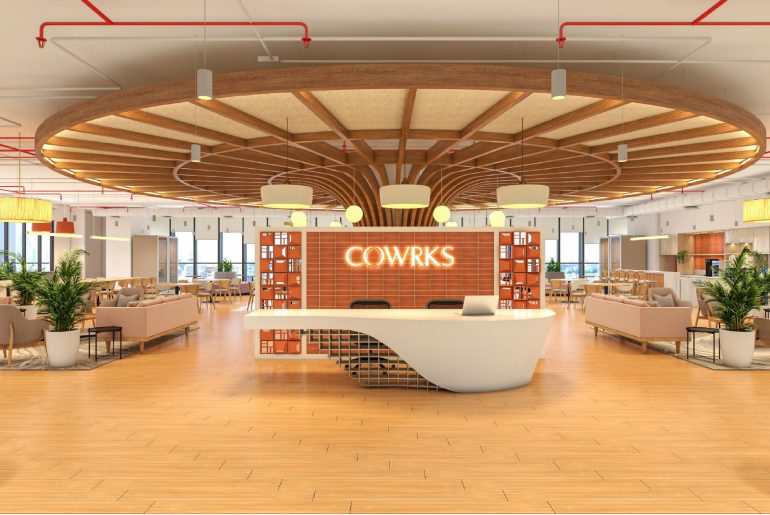Founding an organisation is easy, but managing it is not. And it certainly isn’t a one-man job. Every organisation depends largely on its employees – to fulfil client deliverables, maintain the books, manage the finances and acquire new businesses. Hence, the diverse and dedicated workforce of an organisation is its key to growth. So it’s only fair to reward employees for their hard work.
Quality remuneration with benefits like medical insurance, maternity leave and timely bonuses are certainly attractive but are also the basic benefits an organisation of good repute must offer. However, an effective employee recognition program that recognises the employees’ efforts is appealing. Meaningful praise, monetary rewards and physical gifts/gift vouchers can play a significant role in uplifting the spirits of your staff and motivating them further. The result? Higher employee retention and lower cases of burnout that translate into a win-win situation for both employer and employee. An EconomicTimes.com article states that embracing a culture of recognition is vital to meet all your employees’ needs and bring positive energy into the workplace that’ll increase the company’s performance and profits.
What is an Effective ERP?
An employee recognition program or ERP is a well-defined, systematic process created to reward employees’ achievement and success. A GreatPlacetoWork.com blog simplifies this as ‘all the ways the organisation shows its appreciation for employees’ contribution’. This may not particularly be monetary compensation but any form of reward such as a gift, a personal thank you note, a shout-out on a common forum or even a day off that’ll reinforce positive behaviour and make the employee feel special. A company-wide employee recognition program (ERP) is the cornerstone of efficient employee management playing a vital role in making the employee feel valued. Positive affirmations can do wonders for our morale, mental health and well-being and even boosts efficiency. A Harvard Business Review research proved how a little recognition goes a long way in making the employee feel more valued and supported by the organisation, resulting in several positive impacts such as well-being, intrinsic motivation and a heightened sense of belonging.
But what if it’s not working?
As the head of an organisation, if you’ve suddenly experienced high attrition on the pretext of finding better opportunities, it’s time to evaluate your company’s ERP.
How to improve your current ERP?
Creating an impactful ERP doesn’t have to be a daunting task. Today’s employees want to feel respected, valued and appreciated at their workplace. A strong recognition program will result in content employees, enabling HR to recruit and retain the best talent. It is also essential to make timely updates to your ERP to ensure that it continues to stay relevant and serves its purpose.
Considering that your employees are your most valuable resource, you must spend time creating an honest and thoughtful ERP that motivates and rewards employees beyond material incentives. The website BetterTeam.com, a web-based recruitment management system, suggests taking a holistic approach to understand the types of recognition such as public recognition, private recognition, recognition that results in promotion and recognition that leads to better remuneration. To improve your current ERP, try and include most of these recognition types if not all.
Here are some powerful tips that’ll help:
- Recognise people from all areas of operations: Several times, ERPs end up recognising only a certain section of the workforce, maybe that which brings business or which interacts with clients on a day-to-day basis. However, your organisation consists of support staff too that works in the background to enable smooth day-to-day functioning. Enhance your ERP by making provisions to recognise all these people too. This will make the program more effective.
- Provide opportunities for professional growth: As professionals, we all yearn for career advancement.To make your ERP more efficient, provide advanced training and career development opportunities as part of the program. This will make it more enticing to people who are keen on learning and growing.
- Magnify it: Any recognition becomes 10x more impactful when people know about it. So magnify internal recognitions across company forums such as newsletters, dashboards and meetings. Publicising the recognition will make the employee feel special and important.
- Reward their efforts: Employees who’ve performed consistently beyond the call of duty must be rewarded for their diligence. Give them special privileges that’ll also act as an example for others to follow in their footsteps. A paid leave, a new hi-tech office laptop, a dedicated parking spot, a free lunch etc. will all serve as motivators for their continued efforts.
- Initiate employee engagement activities: It is tougher to leave an organisation where you’ve made friends which will benefit the organisation with higher retention. Upgrade your ERP by including employee engagement activities with interesting rewards that’ll enable employees to interact with one another. This will add an element of fun to the program and instil in them the feeling of belonging that’s tougher to shrug off.
- Recognise even in times of lull: As a leader, you must be consistent and recognise the efforts of your employees even in times of slow growth. This will help instil their faith in the system. The rewards may not be huge but some form of gratification will surely go a long way in building employee trust.
- Collaborate with external partners: Make your reward system exciting by collaborating with external partners such as restaurants, brands, hotels or co-working spaces like CoWrks for interesting services that’ll be useful for the employees and their families. This will stimulate their urge to be recognised, inspiring them to work harder.

Lastly, keep in mind that an effective recognition program must be specific, frequent, visible, inclusive and value-based. This makes it more meaningful and helps teams collaborate toward the common goal of company growth.






